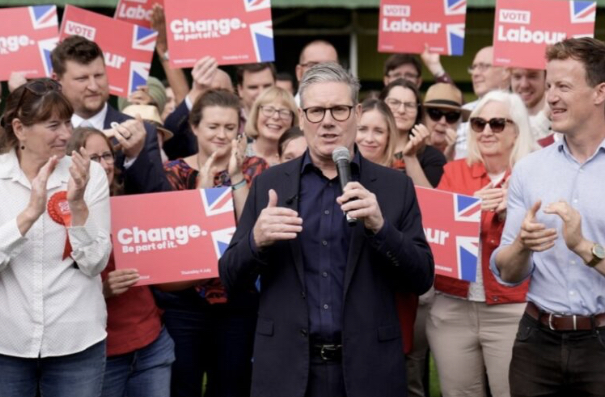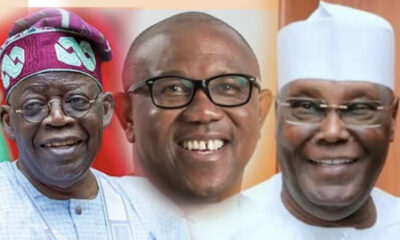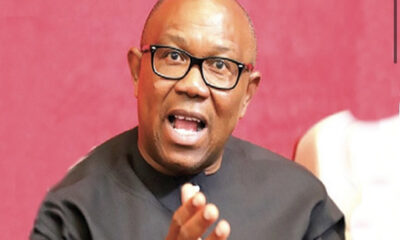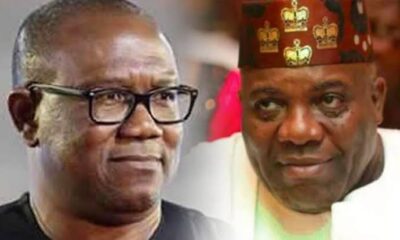News
Labour Party records massive victory on UK elections
Published
2 years agoon

In a historic shift, the Labour Party has claimed a commanding majority in the UK’s general election, ending the Conservatives’ 14-year reign.
Early Friday, Labour crossed the necessary threshold to form a government on its own, leading outgoing Prime Minister Rishi Sunak to concede defeat. Keir Starmer, the head of the centre-left Labour Party, is set to become the new prime minister, celebrating the victory with his party members.
“We did it,” Starmer announced to his colleagues. “You campaigned for it, you fought for it — and now it has arrived. Change begins now.”
Projections suggest that Labour is on track to secure its second-largest majority since Tony Blair’s landslide in 1997, which saw a 179-seat advantage.
Voters across England, Scotland, Wales, and Northern Ireland cast their ballots on Thursday to choose representatives for the 650-seat House of Commons. As vote counting continues, constituencies are gradually declaring their results.
Early trading on Friday saw modest gains for the British pound following Sunak’s concession speech. According to Deutsche Bank analysts, the outcome was largely anticipated.
They noted a significant positive reaction in the UK market, akin to the boost seen when Labour’s Gordon Brown became Chancellor in 1997 and granted the Bank of England independence over monetary policy.
“We don’t believe the market had factored in a significant positive risk premium for this election result. Therefore, we expect sterling to remain relatively stable,” Deutsche Bank stated, adding that investors will now turn their attention to upcoming events, including the second round of the French election and forthcoming UK economic data, to gauge the Bank of England’s next moves regarding interest rates.
The election saw the defeat of several prominent Conservative MPs, including Jacob Rees-Mogg, Penny Mordaunt, and Grant Shapps.
Mordaunt, leader of the House of Commons, narrowly lost her Portsmouth North seat to Labour’s Amanda Martin by just 780 votes.
Labour garnered 34.8% of the vote, while the Conservatives managed 33%, a significant drop from their 61% share in the previous general election.
Jacob Rees-Mogg, a key Brexit figure, lost his North East Somerset and Hanham seat, securing only 30.2% of the vote compared to Labour’s Dan Norris, who received 40.6%.
Defenve Secretary Grant Shapps was defeated by Labour’s Andrew Lewin in Welwyn Hatfield, with vote shares of 33.2% and 41%, respectively.
In his victory speech in London, Keir Starmer expressed his gratitude and vision for the future. “We did it,” he reiterated to his Labour colleagues. “Change begins now. The sunlight of hope, initially faint, grows stronger by the day, shining on a nation that now has a chance to reclaim its future after 14 years.”
Labour has surpassed the 326-seat mark, ensuring it can govern independently in the House of Commons.
Prime Minister Rishi Sunak acknowledged the Conservative Party’s defeat on Friday, congratulating Sir Keir Starmer on Labour’s victory. Despite retaining his seat in Richmond and Northallerton, Sunak admitted it was a “difficult night” for his party and emphasized the need for reflection.
“The British people have delivered a sobering verdict tonight. There is much to learn and reflect on,” Sunak remarked.
You may like
-


2027 : Labour Party dismisses claims of secret deal with Tinubu
-


‘Tinubu better than Obi, Atiku’ — Labour Party former campaign director tells Nigerians
-


Obidient Movement Not Affiliated To Any Political Party – Peter Obi
-


I Was The Highest Beneficiary Of Incorruptible Judiciary, Peter Obi
-


Edo 2024: Labour Party fixes form for N30m
-


Why I resign from Labour Party – Doyin Okupe

Zulum picks APC’s digital membership card

Oyo NLC Praises Gov. Makinde over good performance

Nigeria overcome security challenges says Defence Minister

Kano-based female journalist gets African media network appointment

JUST IN: FG approves increase in electricity tariff


